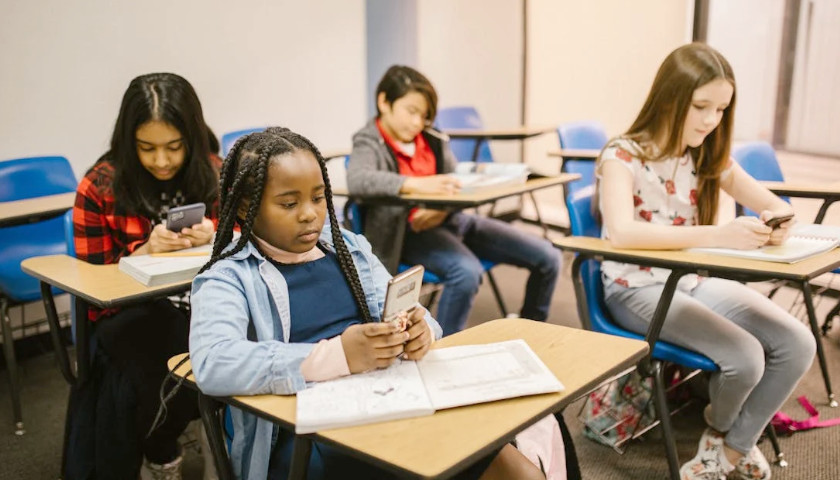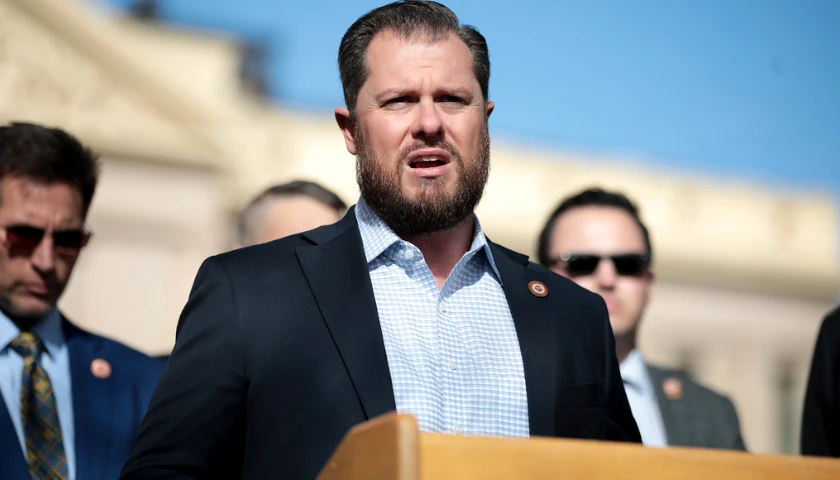by J.D. Davidson
Gov. Mike DeWine’s push to ban cell phones in Ohio classrooms is meeting resistance from Republicans and Democrats.
In last week’s State of the State address, DeWine called cell phones a major distraction in state schools and asked lawmakers to develop legislation that would eliminate the usage in most classroom settings.
Reps. Tom Young, R-Washington Township, and Phil Plummer, R-Dayton, agreed and have introduced a bill that would effectively ban the use of cell phones during instruction times with few exceptions.
The ban would include any device not provided by the school district – cell phones, tablets, laptops, gaming devices, smart watches and headphones.
It also would require districts to develop a policy that prohibits and prevents students from accessing social media platforms through the system’s internet service and ban TikTok on any district-owned device.
Senate President Matt Huffman, R-Lima, agreed with the governor and thinks a ban is important but did not immediately commit to state-level legislation to remove phones from schools.
“I think the idea of eliminating smart phones during the school day is a great idea. The governor has talked about encouraging it. All of us learned to read without the use of smart phones. I think that is something important to happen, beyond the bad content on the internet,” Senate President Matt Huffman, R-Lima, said.
Other Republican and Democrat legislative leaders believe a state law is unnecessary. Schools can currently establish bans if they choose.
“School districts, the leaders and the principals have the ability to do that if they feel like that’s a decision they need to make,” House Speaker Jason Stephens, R-Kitts Township, said.
House Minority Leader Allison Russo, D-Upper Arlington, also believes individual districts should make local decisions.
“I don’t think there is a one-size-fits-all all for every school district and every situation,” Russo said.
The bill’s exception to classroom smart phone usage includes if a teacher allows it, in an emergency or to manage the student’s health care or if using a phone is part of the student’s individualized education program.
The bill also would mandate instruction on the social, emotional and physical effects of social media for sixth- through 12th-graders, which includes instruction on the negative effects of misinformation, how social media manipulates behavior and things shared on social media are permanent.
– – –
An Ohio native, J.D. Davidson is a veteran journalist with more than 30 years of experience in newspapers in Ohio, Georgia, Alabama and Texas. He has served as a reporter, editor, managing editor and publisher. Davidson is a regional editor for The Center Square.








